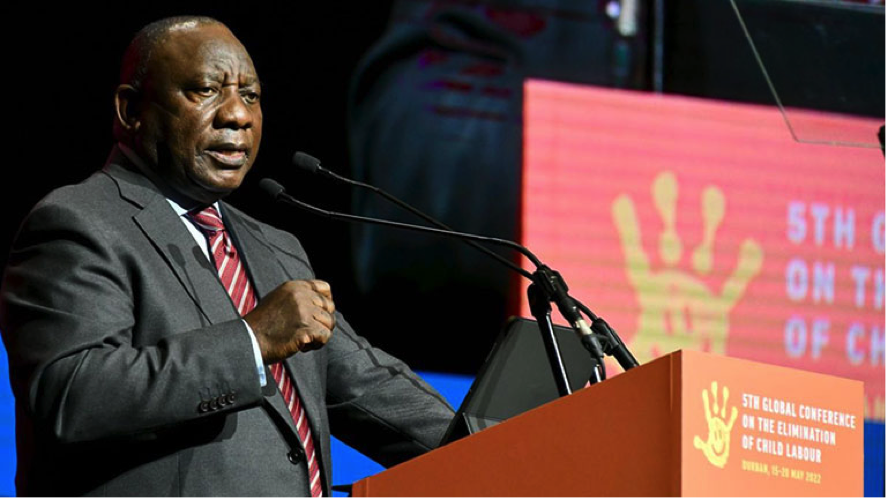|
Getting your Trinity Audio player ready...
|
The 5th Global Conference on the Elimination of Child Labour has opened in Durban, South Africa, with a strong call for urgent action to combat the rising numbers of children in child labour.
Speaking at the start of a week of discussions in Durban, South Africa, and online, President Cyril Ramaphosa called on delegates to commit to taking “far-reaching actions” to make a difference in the lives of children.
“We are here because we share a common conviction that child labour in all its facets is an enemy. Child labour is an enemy of our children’s development and an enemy of progress. No civilization, no country and no economy can consider itself to be at the forefront of progress if its success and riches have been built on the backs of children.”
His call was echoed by Director-General of the International Labour Organization (ILO), Guy Ryder.
“Some may say that child labour is an inevitable consequence of poverty and that we have to accept that. But this is wrong. We can never resign ourselves to child labour. We do not have to. Tackling the root causes such as household poverty is essential. But make no mistake, child labour is a violation of a basic human right, and our goal must be that every child, everywhere is free from it. We cannot rest until that happens.”
With the 2025 UN Sustainable Development Goals deadline for the elimination of child labour looming, many speakers outlined the urgent need to recover the progress that had been made in many regions prior to the COVID-19 pandemic .
Latest figures show that 160 million children – almost one in ten of all children worldwide – are still in child labour. Numbers are rising, and the pandemic threatens to reverse years of progress. Child labour has grown particularly in the 5 to 11-year-old age group.
It is the first time the Global Conference on the Elimination of Child Labour has been held in Africa – a region where, based on sheer numbers, child labour numbers are highest and progress has been slowest. Most child labour on the continent – some 70 per cent – is in agriculture, often in settings where children are working alongside their families.
The conference will build on four previous Global Conferences, held in Buenos Aires (2017), Brasilia (2013), The Hague (2010), and Oslo (1997), which raised awareness of the issue, assessed progress, mobilized resources, and established a strategic direction for the global movement against child labour.
It is expected to conclude with a Durban Call to Action that will outline concrete commitments to scale up action to eliminate child labour.






